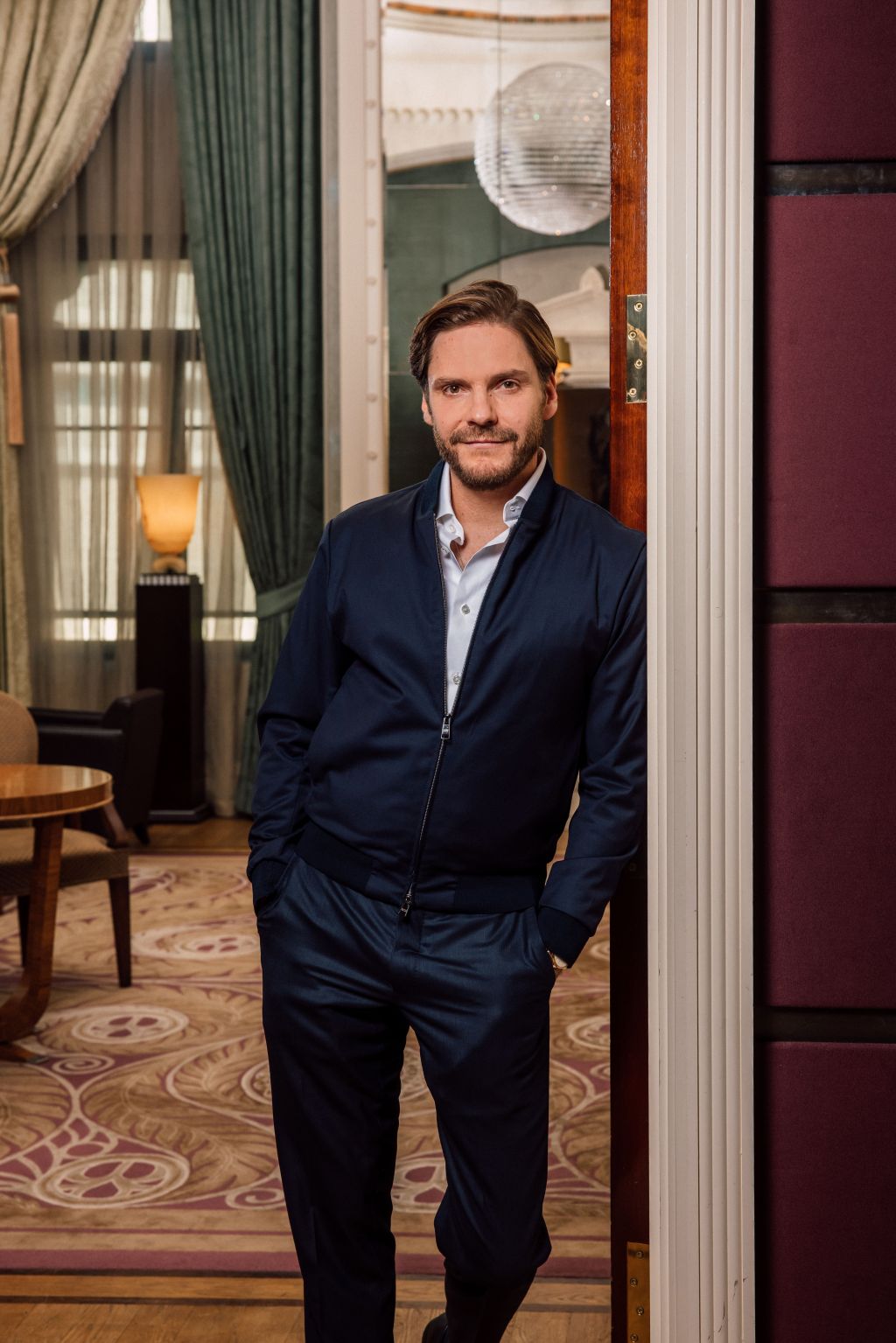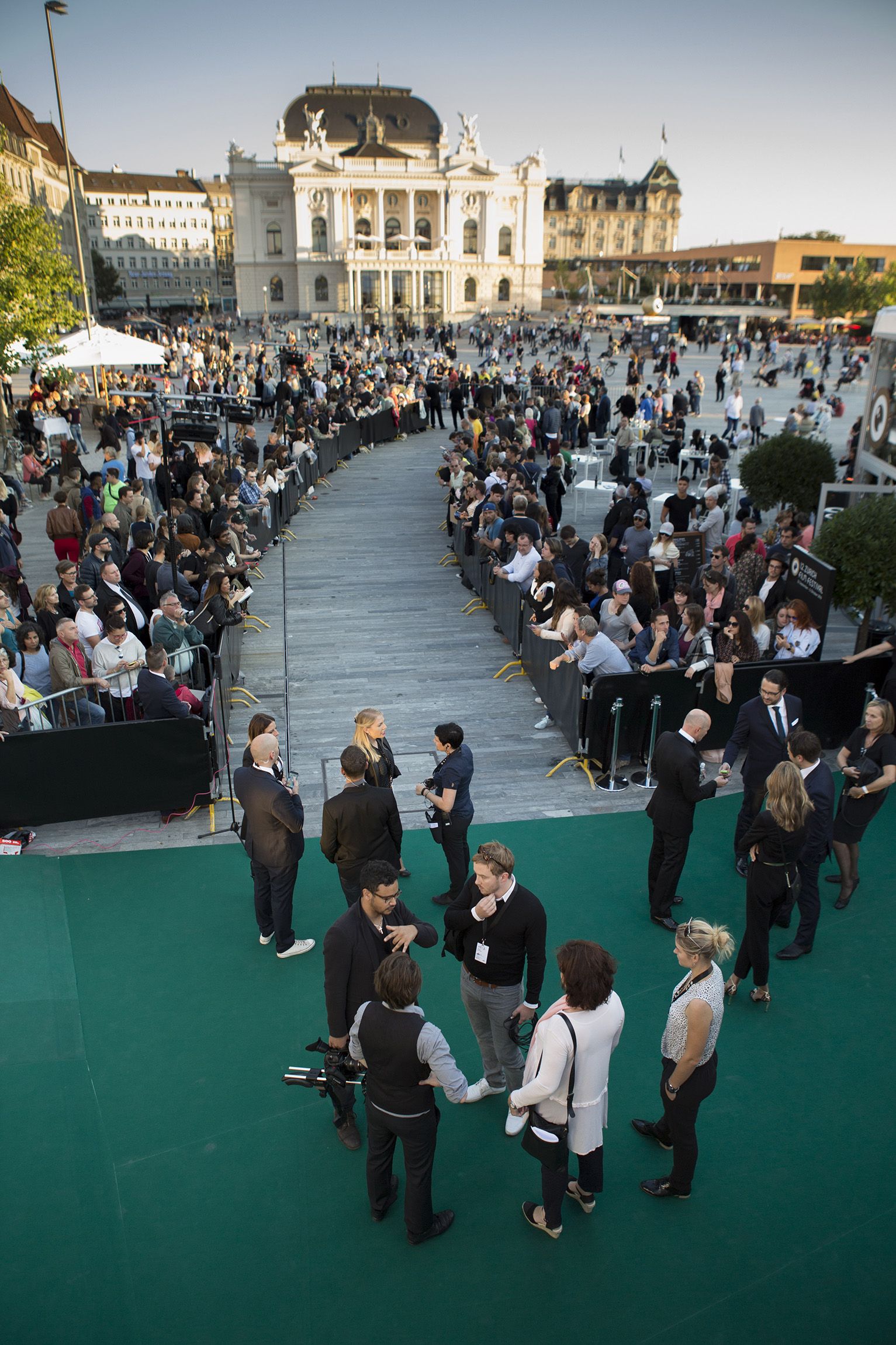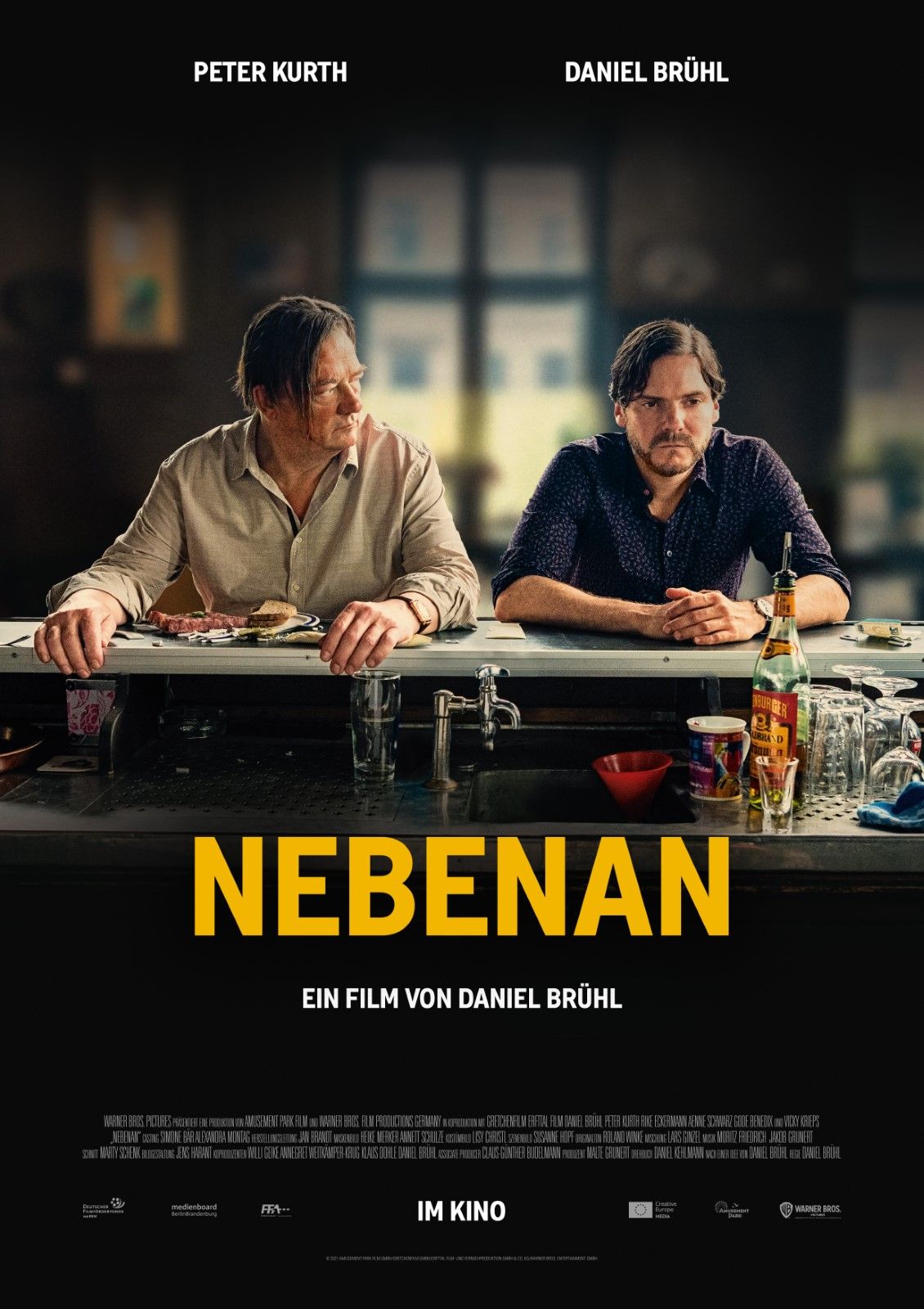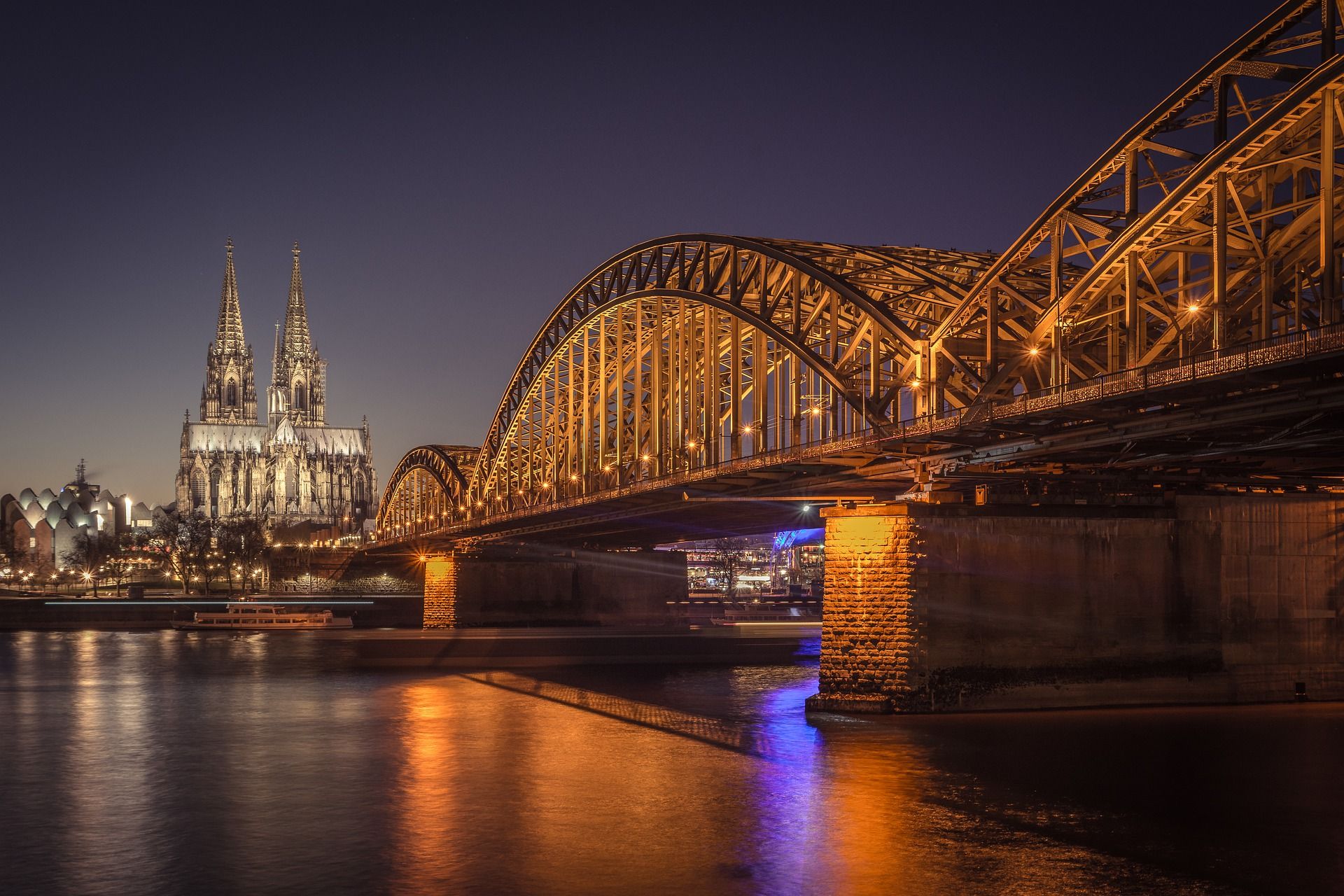“You have to make decisions quickly. Even when it’s the wrong decision. And you know that it’s the wrong one.”
Daniel Brühl is one of the most successful German actors, first gaining international recognition in 2003 with the film “Good Bye, Lenin!” , which was then followed by numerous international blockbusters, including Quentin Tarantino’s “Inglourious Basterds” . This year, he made his directorial debut with the film “Next Door”. At the beginning of October, the 43-year-old was in Zurich for the Zurich Film Festival. A discussion about the charm of old films, the pressure to succeed, and why cinema isn’t going anywhere despite streaming giants like Netflix.

What was the last film you watched privately?
(thinks for a moment) It was “Shoeshine” by Vittorio De Sica. A true classic that I hadn’t seen before. That happens a lot when I think about which films I still want to watch. And I have to say, once again I was so impressed by how timeless the films were that the Italians were making back then. Funnily enough, this week I also watched a great film from an Italian director as part of the competition for the Zurich Film Festival – it was able to remain a part of this tradition while also bringing it to life in a modern way. I think it’s incredible how the films from that period don’t age. When you’re filming, you have no influence over how it will be perceived later on, or if people will even still watch it. Only time will tell. Recently, I watched “All About Eve” with one of my nephews – a black-and-white film, which isn’t exactly something young people are thrilled about (laughs). But then you watch it and you realise that the film is fresher and more dynamic than half of the films being made today.
Which film could you watch over and over?
Once again, I’m still stuck in this era: I think I’ve watched “Rocco and His Brothers” a thousand times. With a young Alain Delon. An absolute masterpiece. The film is divided up into chapters that tell an emotional, touching story about this family that moves from southern Italy to Milan and tries to make it there. It covers all the major themes like love, betrayal and hate, as well as competition between the brothers. I loved this film back when I was 16 and had my first VHS player and my father recommended it to me. Back then, when I stood in front of the mirror, I wanted to look as cool as Alain Delon or Jean-Paul Belmondo in “Breathless”. Unfortunately, it didn’t work. But I still became an actor anyway (laughs)! Paul Schrader was just here – he’s someone I’ve always admired. “Taxi Driver”, all of these films from the era of New Hollywood films, you can watch them again and again. It’s amazing how these films 100% influenced newer movies like “Joker”.
You have a predilection for classic film. Do you think that this period still shapes the films that are made today?
Yes, absolutely. Back then, they did so many great things that are still referenced today. If you do it well, and you also add your own unique spin, then it’s great. But when you’re just remaking the same films over and over again, which is often the case, then at some point it gets boring. But it’s also true that it’s no longer quite as easy to add something worthwhile. At the same time, I’m only 43 and I’m not saying everything was better back then. Not at all (laughs)! This proved to be true this week at the Zurich Film Festival.

At this year’s festival, you’re presiding over the jury for the Feature Film Competition, and you’ve watched countless films in recent days as a result. What’s your conclusion?
The competition was fantastic. An incredible selection, and the best of the competitors from other festivals as well. There were a few absolute highlights. This also proves that there will always be new voices, new stories and new film-makers who make impressive films. I had a great week here. The Zurich Film Festival is perfectly organised and always treats its guests well! Sadly, that’s no longer the case in Germany. But in Switzerland, everything still works well (laughs)! My colleagues on the jury were amazing, I’m staying in an incredible hotel (editor’s note: he stayed at the Dolder Grand) in a beautiful city. So, I really can’t complain. There’s nothing to nitpick. It’s almost eerie (laughs).
Streaming is becoming increasingly popular – do you see this as an opportunity or a threat to the cinema?
It’s a double-edged sword . I have to say that streaming has resulted in some great things. But it’s also making things harder for cinemas. As a competitor, it should be taken seriously. That’s why it’s important for us to save our cinemas today. And festivals like the ZFF certainly help. This week, it was really lovely to see that the cinemas were full again. That is extremely important because it once again shows the magic of going on a journey and watching a film together with all these other people. There’s nothing else like it. And having a projector and a screen at home, like I do, is no alternative. Of course, aside from productions like James Bond and Marvel, smaller films also need to have a chance. And that is much more difficult today than it was 10 or 20 years ago. I have to admit, I don’t have a clear vision for the future of cinema. But I think it will never disappear completely. It’s simply too magical.
With “Next Door”, you celebrated your directorial debut and you also played the lead role. Did you feel a lot of pressure for the film to be successful? Or, to put it another way: How much pressure do you think you put on yourself?
I think it’s all about hiding it. Acting like everything’s fine. It’s the same as with vanity – it’s better to hide it, otherwise it gets uncomfortable (laughs). Of course, there are also upsides to this kind of pressure to succeed. It’s a wonderful feeling when you can withstand and survive that pressure, when you overcome your fears and anxiety and you simply do something instead of just talking about it. There’s something liberating and fulfilling about that. Naturally, there were some aspects that made things hard for everyone, myself included, specifically the arrival of the pandemic in Berlin. That happened on our first day of rehearsals. It was the first wave. With so much uncertainty. So the project was put on hold, and shortly thereafter, it looked as if everything would fall through. Which, to be honest, after two years of writing with Daniel Kehlmann, was extremely difficult for me. But without realising it, I had created a very pandemic-friendly concept: just four guys in a bar and a small production team. So it worked. And everyone involved made it possible for us to complete the project anyway, while at the same time complying with all the necessary safety measures. And it went well. I’m extremely pleased about that.

Did this experience change your perspective on acting?
Yes, it increased my humility, or rather my respect for directors. When you do it yourself, you become aware for the first time just how many decisions need to be made every day. And you can’t shirk that responsibility. You’re responsible for everything and you have to make decisions quickly. Director Matthew Vaughn gave me that piece of advice. He said: “You have to make decisions quickly. Even when it’s the wrong decision. And you know that it’s the wrong one.” You can’t start doubting yourself or go back and forth for too long. After all, the wheels are in motion, the clock is ticking, and when you’re filming, there’s always so much pressure.
As the saying goes: “It’s better to make the wrong decision than no decision.”
Exactly! I took that saying to heart. For example, actors who always come to the director with great ideas, even when it’s not the right moment. It’s something that I know from experience, feeling insulted because the director doesn’t have time for you. Now that I’ve been in that role myself, I noticed how annoying that can be (laughs loudly). That was a good experience. I have the utmost respect for film-makers who have been doing it for decades and just keep scaling these mountains, securing funding, convincing people, then you film, then you need to cut, then someone thinks it’s boring, then you cut again, then the critics come and tear it apart. And then you do it all again. To keep fighting and keep going – that’s something I really respect.
How do you handle criticism?
My father, who was also a director, gave me a lot of great advice in this regard. You have to try to properly align your inner compass and, despite all the external influences that you’re bombarded with, look inside yourself and ask yourself honestly: “Was that good or bad?” So now I made a film and I think it’s good. That’s important. But, of course, I’m not happy when people find fault with it. People love to do that in Germany. But the reviews have generally been very favourable and positive. Some I read, some I don’t. But it doesn’t get under my skin because, at the end of the day, I’m happy with my work. And I would be honest with myself if that weren’t the case.
Your dream role?
I’ve never had one dream role, to be honest. Napoleon, perhaps (laughs). Just joking. Broadly speaking, I can imagine the kind of figure I’d want to play. I would really love to do something in my own dialect. I grew up in Cologne, and I love the culture of the city and the region. There’s something sorrowful about it, which means it has a lot of potential for a great loser role. But one that touches your heart. And to be able to speak that way in a film, well, I’d love that (spoken in the Cologne dialect). That would be something, but I haven’t gotten an offer yet. But at the moment, I’m currently working with a journalist on a project that might turn into something.

Sometimes you have to take things into your own hands!
Exactly. If no one else is offering it to you, then you have to do it yourself. And I do have a lot of offers coming in, but when you’re looking for something this specific, you might have to wait a long time. That’s why I joined a production company a few years ago. And I’m very pleased with how it’s going. We recently made “All Quiet on the Western Front” with an enormous budget, at least for German standards. That was a major undertaking for us, and I’m extremely proud of the results. We also have a lot of great projects in the pipeline. It’s really fun.
The last one and a half years have been and remain difficult for all of us. What’s the most important lesson you’ve taken away from this time?
Gratitude! Gratitude for what I have. We had our second son in the middle of the pandemic and he was born healthy. My whole family, including the older family members, all stayed healthy. I’m grateful for that alone. And then to be able to live in a country and in a city where I know that I am in good hands and have a highly functioning healthcare system – that’s something I am extremely grateful for. Now life is slowly returning to normal and I’m realising just how much I’ve missed it. Especially in my field, which is extremely social. It’s great to see people eating in restaurants again and to see the cinemas fill up. That’s something I really noticed here in Zurich.
What playlist are you listening to right now?
At the moment, I’m listening to a lot of Italian songs. Perhaps because, as a result of the films I watched, I’ve had a very Italy-themed week here in Zurich. I have the ultimate Italian playlist. For example, there’s an Italian pop musician who I really love, Germanò , I think he’s from northern Italy. Here in Zurich, we were driving with the windows down and we were all singing along to “Felicità ”.
Sometimes you just have to (laughs).
How many times a day are you on Instagram?
Oh, you have to set limits with Instagram. Especially with children. I’m on there a few times a day. But my rule is never to look at my phone more than twice a day. That’s important when you have children. Our one-year-old has already discovered the magical pull of this device. You can put five Duplo blocks in front of him and he will still choose the glowing screen. It’s terrifying. My wife is extremely disciplined, and I’m trying to be too. I only look in secret (laughs). But you need to be careful not to get too addicted to these things. I think Instagram is great, it gives you a lot of opportunities to promote your own projects and reach fans. It’s part of our zeitgeist. But it shouldn’t control your entire day and lead to an addiction. Who cares what someone else is having for breakfast? It’s much more interesting to keep a bit of mystery, rather than sharing every single detail of your life.
What does luxury mean to you?
Travel! And I’m happy that we can do that again. Learning about different people and cultures. Having time to yourself. Time without distractions, especially without a smartphone. Time with no reception. Then you no longer need meditation apps (laughs).
What is a dream that you want to make come true one day?
(thinks) I’ve been dreaming about “my place” in Spain for ages. In the country. And I’m currently looking for one. Somewhere to get away from it all. That would be wonderful!